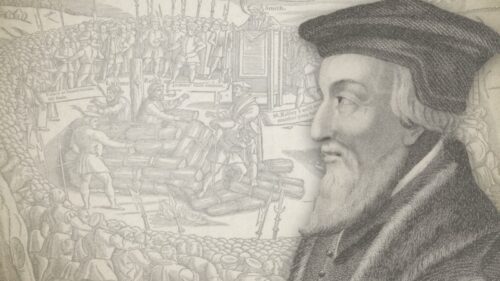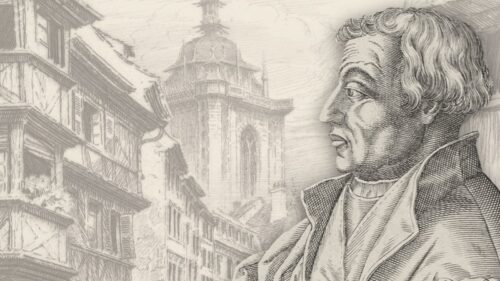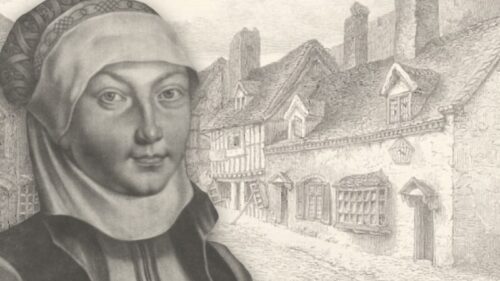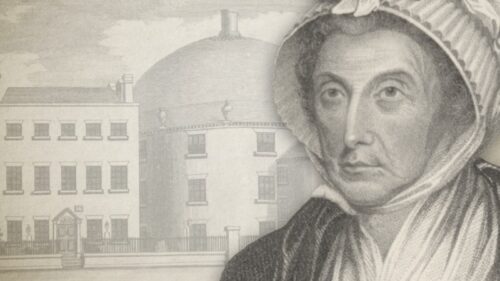-
John Gill and His Successors
The witness and teaching of Dr John Gill (1697-1771) so impressed his friends Augustus Toplady and James Hervey that they maintained his work would still be of great importance to future generations. This also became the conviction of John Rippon (1750-1836) and Charles Haddon Spurgeon (1834-1892), Gill’s more well-known successors to his pastorate, but it was also the testimony of those who served for shorter periods at Carter Lane such as John Martin, Benjamin Francis and John Fawcett. The witness of these faithful men of God has helped point generations to Gill’s works which have subsequently enriched their lives. The present evangelical establishment is apparently striving to unite Calvinism with Arminianism, Baxterism and worse in an effort to promotean ecumenical doctrinal mish-mash which will suit…
-
“Easy” Misses The Point
Do you ever feel there is more to the gospel than most people make out? Someone says, “The gospel is easy, all you have to do is believe”. Well that sounds easy. What do I have to believe? “Oh, just believe that Jesus died.” H-okay. Everyone dies – so that’s not hard to believe. Does that make me a Christian? “Well no, you have to believe He rose again from the dead, as well”. Okay. I can do that. Right, done. “And that He went to heaven. And that He is coming back.” Okay. Anything else? “Well, you must believe in God and believe you’re a sinner.” “And you have to worship, and trust in the blood, and get baptised.” “You have to repent and…
-
John Gill and the Cause of God and Truth
So often when speaking about the work of the Holy Spirit which infused the churches with new life in the 18th century, mention is made of Anglican stalwarts such as Whitefield, Hervey, Toplady and Romaine. The works of these men through God’s sovereign grace cannot be praised enough but the fact that recent biographers have highlighted their activities has tended to give the impression that other denominations, such as the Baptists, were quite inactive during this period. This is by no means the case as the testimony of John Gill shows. John Gill was born in 1697 in the town of Kettering and became a member of the Particular Baptist church there before being called to the pastorate at Goat Yard Chapel, Horselydown, London. This…
-
The Ministry of Septimus Sears (1819-1877)
The Ministry of Septimus Sears (1819-1877) as Seen By his Congregation and Challenged by David Gay Septimus Sears, renowned in England as one of the country’s most outstanding pastors and preachers, started his ministry at the age of 20 before taking over Clifton Strict Baptist Church, Bedfordshire which he shepherded from 1842 to his death in 1877. Sears suffered all his life from severe heart trouble and was burdened by long periods of paralysis and typhus. His neck bones were so deformed that he had to wear an iron collar to support his head. Nevertheless, he preached three times on the Lord’s Day and often during the week. He edited two Christian magazines, The Little Gleaner and The Sower, and published many sermons besides a…
-
What Is Hyper-Calvinism?
What Is Hyper-Calvinism? This same question appears as the title for an article written by Ronald Hanko for the Protestant Reformed Churches in America (PRCA). You may view the full article here. Hanko admits that his group (PRCA) is often maliciously charged with being hyper-Calvinists, because it rejects the well-meant offer of the gospel. However, he argues the historic definition for hyper-Calvinism[1] is restricted to those who deny the doctrine of duty-faith, rather than those who reject the free-offer. He writes, “Historically, the name has been applied to those who deny that the command of the gospel to repent and believe must be preached to all who hear the gospel.” He goes on to explain: “A hyper-Calvinist (historically and doctrinally) is…one who believes rightly in…
-
William Carey: Using God’s Means to Convert the People of India (Part 2)
Part Two: The Mission Prospers The mission at Serampore prospered and spread. Carey was given the most prominent building in the city for the church in which he preached for the next thirty-four years. The town of Serampore, too, prospered as it proved an asylum of peace for fugitives from the Americo-Franco-British wars and it persuaded many wealthy investors to settle there. More missionaries were urgently needed as Brunsdon soon died of a liver complaint. Fountain, who was doing pioneer work at Dinapoor, also died after a short illness. Thomas rejoined the mission but became insane and soon died. The missionaries were able to purchase a very large house in the middle of the town with two acres of garden from the Governor’s nephew for…











